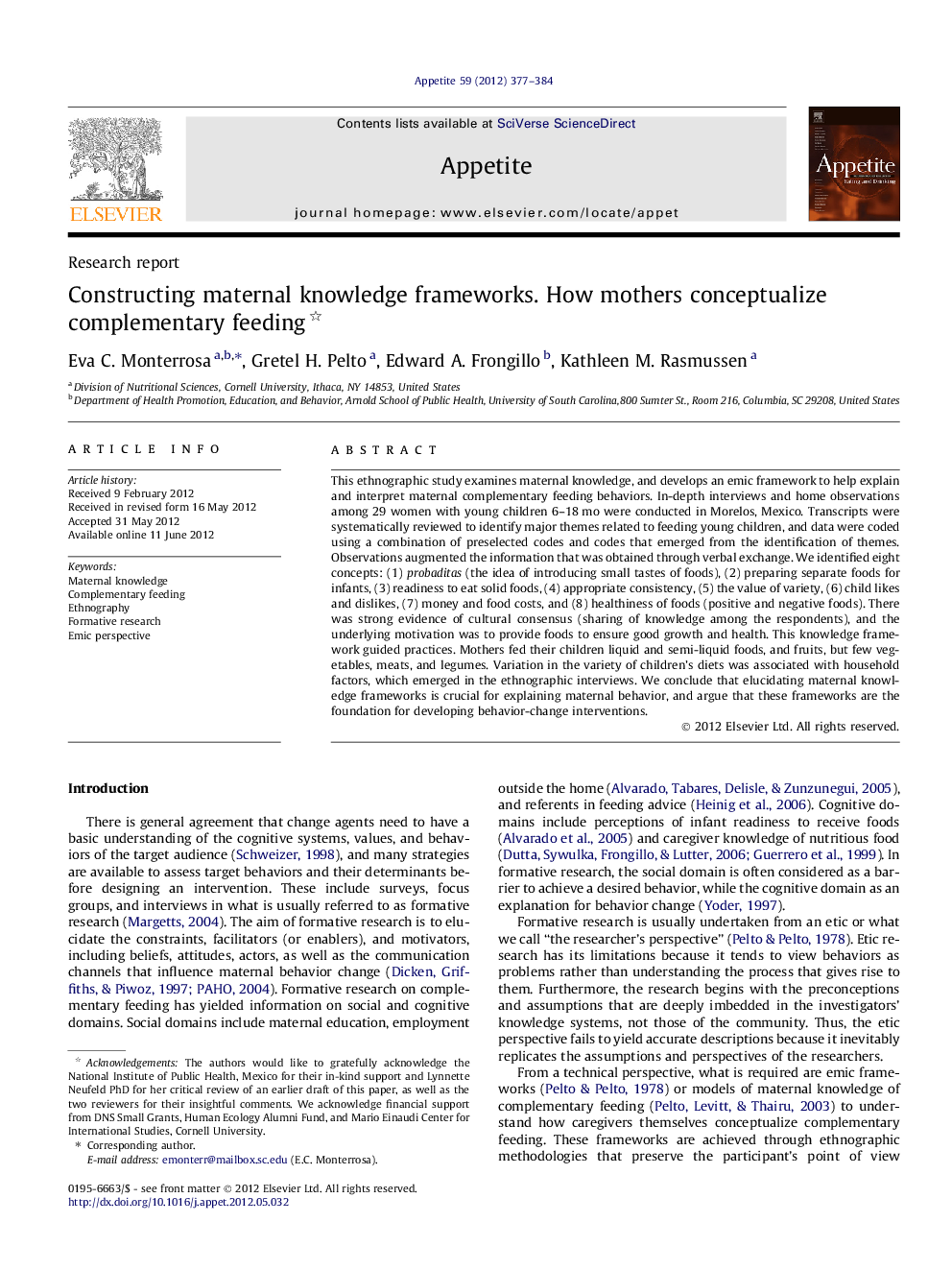| Article ID | Journal | Published Year | Pages | File Type |
|---|---|---|---|---|
| 939955 | Appetite | 2012 | 8 Pages |
This ethnographic study examines maternal knowledge, and develops an emic framework to help explain and interpret maternal complementary feeding behaviors. In-depth interviews and home observations among 29 women with young children 6–18 mo were conducted in Morelos, Mexico. Transcripts were systematically reviewed to identify major themes related to feeding young children, and data were coded using a combination of preselected codes and codes that emerged from the identification of themes. Observations augmented the information that was obtained through verbal exchange. We identified eight concepts: (1) probaditas (the idea of introducing small tastes of foods), (2) preparing separate foods for infants, (3) readiness to eat solid foods, (4) appropriate consistency, (5) the value of variety, (6) child likes and dislikes, (7) money and food costs, and (8) healthiness of foods (positive and negative foods). There was strong evidence of cultural consensus (sharing of knowledge among the respondents), and the underlying motivation was to provide foods to ensure good growth and health. This knowledge framework guided practices. Mothers fed their children liquid and semi-liquid foods, and fruits, but few vegetables, meats, and legumes. Variation in the variety of children’s diets was associated with household factors, which emerged in the ethnographic interviews. We conclude that elucidating maternal knowledge frameworks is crucial for explaining maternal behavior, and argue that these frameworks are the foundation for developing behavior-change interventions.
• Formative research has not effectively elucidated maternal knowledge frameworks. • Researchers can construct knowledge frameworks through ethnographic methods. • Mothers have a knowledge framework that guides complementary feeding. • Knowledge frameworks are crucial for devising interventions to improve complementary feeding.
